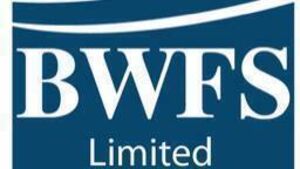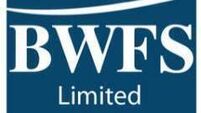Hitting key life milestones later? Make sure your retirement plan is keeping pace.

We are all living longer, and our financial strategies need to reflect that.
People often underestimate the amount of money they will need, and the amount of time they will spend, in retirement. But as Ireland’s population ages, and people hit key milestones later in life, accurate planning is even more important.
So what are the key challenges many of us will face, and how can we ensure our retirement nest egg meets those challenges?
The average life expectancy is 81 for Irish men and 84.5 for Irish women, according to the latest official figures. This compares to a life expectancy of about 70 for men and 73.5 for women in 1973. The latest census shows that there has been a 44 per cent increase in the number of retired people since 2011.
While this increase in life expectancy is a good thing, it is also something that can impact planning for retirement. The money in your pension pot could have to last 20 or more years, depending on how long you live after retirement.
A proven way of building up a suitable pension to fund a comfortable lifestyle at retirement is to start saving early and to contribute to it regularly. Before deciding how much you need to save into a pension, decide what kind of income you want when you retire, and then set this as your target pension.
Most financial brokers recommend you aim to have an annual income equivalent to between 50 and 66 per cent of your final salary on retirement, but you may need more or less than this, depending on your financial circumstances.
Once you set your target pension, there are tools available to allow you to estimate the contributions you need to pay into your pension to hit that target. For example, the Pensions Authority has a useful calculator on its website that allows you to do this.
Consider too taking full advantage of anything that will make it easier for you to save up the pension you will need in retirement, including the tax relief on pension contributions and any company pension scheme available to you. With some defined contribution work pension schemes, the more you pay into your pension, the more your employer will pay.
Saving extra money into your pension through additional voluntary contributions can also boost your pension, though be careful not to contribute more than you can get tax relief on.
The average age of mothers giving birth in Ireland is at its highest point since records began. This age has increased significantly in recent years: from 29.6 years in 1991 to 33.3 years in 2021. Furthermore, the latest Central Statistics Office figures show that the number of Irish women giving birth at the age of 40 and over is about a third higher than it was in 2011.
While there are plenty of reasons, such as career progression and later marriages, why women and men in Ireland might decide to have children later in life, doing so can eat into their retirement income and could even mean them having to work into retirement.
For example, if you have children in your late 30s or early 40s, they could still be in college during or near your retirement. It currently costs €56,376 to send one child to college for four years if they are living away from home, according to TU Dublin’s latest cost of student living guide.
Such a bill could make it more difficult for you to save an adequate amount into your pension as you approach your retirement and could also see you having to borrow to fund the cost of your child’s education at that late stage in your life.
Furthermore, if college bills are due when you are retired, unless you have adequately prepared for them you could have to work into retirement. To reduce the chances of finding yourself in any of these positions, you could start saving for your child's college education shortly after they are born and invest that money wisely.
Of course, college bills are not the only costs you will face as a parent. Other large costs could include dental, healthcare, and childcare bills; the day-to-day costs of bringing up a child; financial support towards an older child’s purchase of property and so on.
Saving up early for such costs, as well as budgeting efficiently, can improve your overall financial position and this in turn can help you build up an adequate retirement income.
Not only are people in Ireland having children later in life, but they are also buying homes later in life. The median age of a house buyer is now 39, up from 35 in 2010. More than six in ten houses are bought with a mortgage, according to the latest CSO figures.
For those buying a home with a mortgage, the median age has risen from 33 in 2010 to 43 in 2021, according to the CSO. For those buying a home without a mortgage, the median age for purchasers increased from 43 to 47 years over the same period.
There are many reasons why people may buy their home later in life – the price of houses in Ireland today means that it often takes time to become financially ready to buy one, while lack of supply is also an issue.
However, taking out a mortgage late in life could see that debt follow you into your retirement years and in turn eat into your retirement income. With the mainstream Irish banks, you have the option to repay your mortgage up until the age of 69 or 70.
To avoid your mortgage having an impact on your retirement income, ideally clear your mortgage before you reach the age of 65, or earlier if you can. Failure to do so could mean that you will need to continue working into retirement.
Avoid topping up your mortgage close to retirement too. While you might consider this to fund home improvements, or to give your child a deposit towards their first home, a top-up mortgage at that stage could put you under unnecessary financial pressure in your retirement years.
Be aware too those unforeseen circumstances, such as an illness or redundancy, could see you struggle to repay a top-up loan.
It is important to regularly review your pension investments to ensure they are suitable and are likely to deliver the retirement income you are hoping for. Be sure too that these investments are appropriate for your stage in life.
For example, while you can afford to take a certain amount of investment risk with your pension savings when in your 20s, 30s and 40s, as you approach retirement, you will usually need to move your pension savings out of any high-risk investments.
Be careful too about how your pension savings are invested if you opt for an approved retirement fund (ARF), a personal retirement fund where you can keep the money in your pension pot invested after you retire. At this stage of your life, it is important to assess your long-term financial needs, including regular living expenses, discretionary spending, and healthcare costs.
Regardless of your age, be fully aware of, and comfortable with, the risks and costs attached to any investment you are considering putting your pension savings into.
Remember too that diversification – where rather than putting all of your eggs in the one basket, you invest in a range of different investment assets and types, thereby smoothing out and reducing the investment risk – is important when saving for retirement.
It is important too to get independent advice from a regulated advisor around pension investments.
You normally must choose between an annuity and an ARF when you retire. An annuity is an annual pension you can buy with the money in your pension pot when you retire and gives you a guaranteed income for the rest of your life.
You therefore do not have to worry about your pension pot running out of money in retirement when you have an annuity. Rather, the issue is that the annual pension you get through an annuity may be much smaller than you had anticipated.
ARFs work differently to annuities, as you can withdraw money from your ARF regularly to give yourself an income when you retire. Unlike an annuity, there is a risk that you could run out of money in retirement, so you need to manage your withdrawals in a way which does not risk exhausting your fund.
Careful management of your ARF, as well as sensible investment decisions around it, can provide you with an income throughout your entire retirement.
When deciding between an ARF and an annuity, weigh up the pros and cons of each and choose the option which suits you best and makes the most financial sense.
The right advice will help you calculate how much money you will need in retirement and how much you will need to save to reach that target, while also providing information on the type of investments available, in line with your personal circumstances.
Pensions are a complex area: do not be afraid to seek financial advice from a financial broker.
Mark Reilly is pensions proposition lead with Royal London Ireland Barry Walsh Financial Services Limited 13, Parnell Street Waterford has an agency with Royal London
Landline: +353(0)51 584776 Mobile: +353(0)86 238 4225
linkedin.com/in/barrywalshfs
e-mail: info@bwfs.ie






